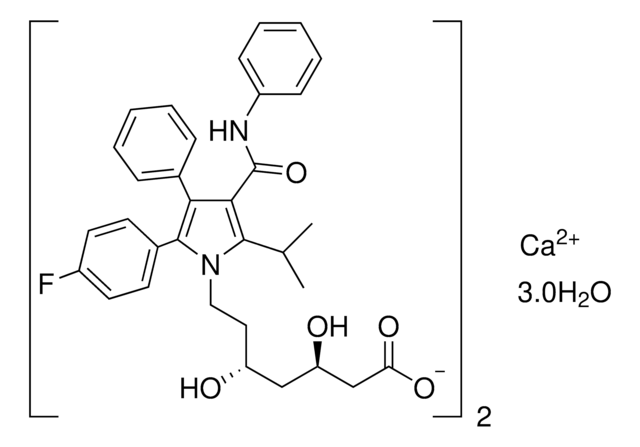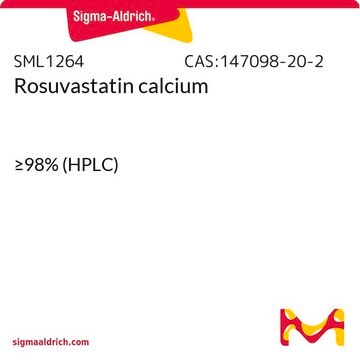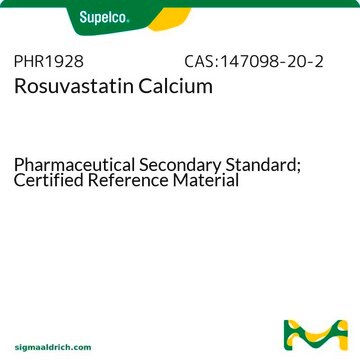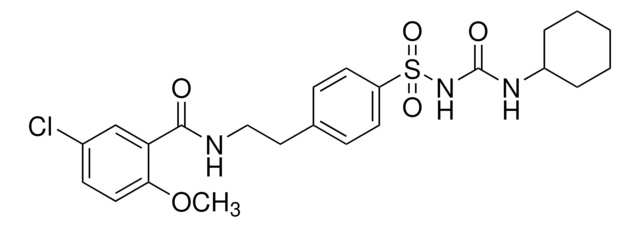SML0038
Fluvastatin sodium hydrate
≥98% (HPLC)
Synonym(s):
(±)-(3R*,5S*,6E)-7-[3-(4-Fluorophenyl)-1-(1-methyethyl)-1H-indol-2-yl]-3,5-dihydroxy-6-heptenoic acid sodium salt hydrate
About This Item
Recommended Products
Assay
≥98% (HPLC)
form
powder
storage condition
desiccated
color
white to tan
solubility
H2O: ≥9 mg/mL
originator
Novartis
storage temp.
2-8°C
SMILES string
O.[Na+].CC(C)n1c(\C=C\[C@@H](O)C[C@@H](O)CC([O-])=O)c(-c2ccc(F)cc2)c3ccccc13
InChI
1S/C24H26FNO4.Na.H2O/c1-15(2)26-21-6-4-3-5-20(21)24(16-7-9-17(25)10-8-16)22(26)12-11-18(27)13-19(28)14-23(29)30;;/h3-12,15,18-19,27-28H,13-14H2,1-2H3,(H,29,30);;1H2/q;+1;/p-1/b12-11+;;/t18-,19-;;/m1../s1
InChI key
KKEMYLLTGGQWCE-PMRANXHDSA-M
Application
- to examine its effect on β -glucan-induced training on immunity
- to investigate the effect of statins on the number of uncoupling protein 1 (UCP1)+ cells
- to determine its effect on insulin degrading enzyme (IDE) secretion from astrocytes
- to treat and study its effect on human umbilical vein endothelial cells (HUVECs) in vitro
- to test its anti-hepatitis C virus (HCV) activity
- as a cholesterol inhibitor
- to study its effects on β-glucan-induced monocyte immune training
Biochem/physiol Actions
Features and Benefits
Storage Class Code
11 - Combustible Solids
WGK
WGK 3
Flash Point(F)
Not applicable
Flash Point(C)
Not applicable
Certificates of Analysis (COA)
Search for Certificates of Analysis (COA) by entering the products Lot/Batch Number. Lot and Batch Numbers can be found on a product’s label following the words ‘Lot’ or ‘Batch’.
Already Own This Product?
Find documentation for the products that you have recently purchased in the Document Library.
Customers Also Viewed
Articles
Discover Bioactive Small Molecules for Lipid Signaling Research
Discover Bioactive Small Molecules for Lipid Signaling Research
Discover Bioactive Small Molecules for Lipid Signaling Research
Discover Bioactive Small Molecules for Lipid Signaling Research
Our team of scientists has experience in all areas of research including Life Science, Material Science, Chemical Synthesis, Chromatography, Analytical and many others.
Contact Technical Service











